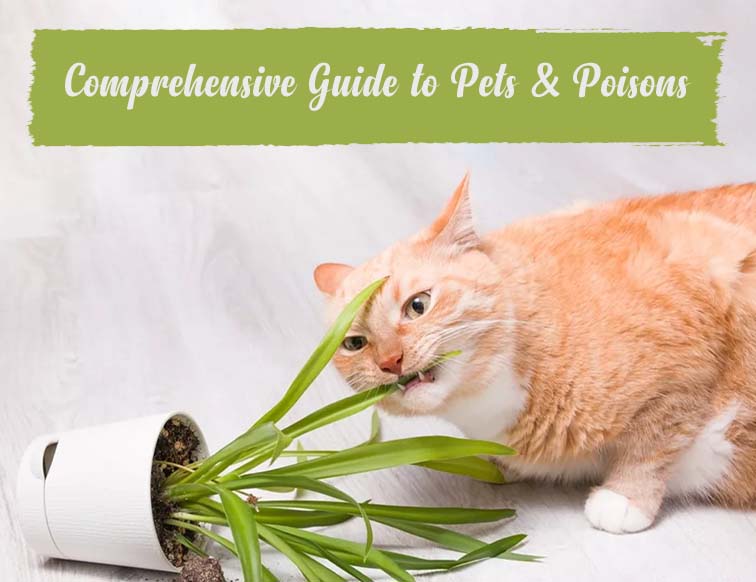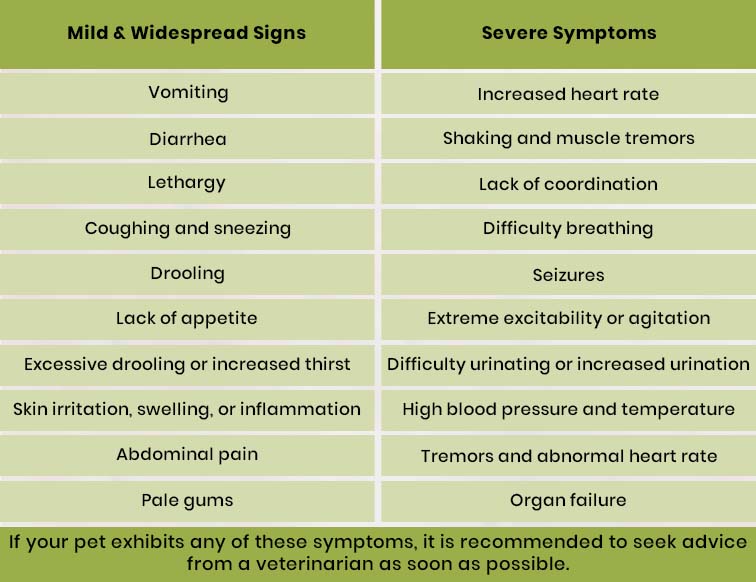Comprehensive Guide to Pets & Poison

Our pets bring us immeasurable joy and companionship, but they can also find themselves in potentially dangerous situations, especially when it comes to accidental poisoning. In this comprehensive guide, we will explore the various types of poisons that can harm our beloved pets, the signs and symptoms of poisoning, and what to do if your pet comes into contact with a toxic substance. Additionally, we will delve into the crucial topic of treatment for poisoned pets, providing you with the knowledge to act swiftly and effectively in the event of an emergency.
Understanding Poisoning and Toxicity
Poisoning occurs when a substance, whether natural or synthetic, in the form of gas, liquid, or solid, enters the body and causes harm. Pets can be poisoned by ingesting, inhaling, absorbing through the skin, or being injected with toxic substances. The effects of poisoning can range from mild illness to severe organ damage and even death. It’s important to note that even exposure to a toxin through contact can lead to serious poisoning, emphasizing the need for awareness and prevention.
Identifying Common Poisons
Our homes and surroundings are filled with items that can be harmful to our pets. These poisons can be categorized into three main types: human food, environmental toxins, and household items. From chocolate and certain plants to cleaning products and medications, the potential sources of poisoning are numerous and often unsuspected.

Recognizing the Signs and Symptoms
The signs and symptoms of pet poisoning can vary widely, from mild gastrointestinal distress to severe neurological effects. Pet parents must be vigilant and attentive to any unusual behavior or physical changes in their pets, as early detection can be life-saving.

Potential Pet Toxins Found In the Home
- Batteries: If chewed, the acidic substance inside can leak out and cause burns to your pet’s mouth, esophagus, and stomach.
- Cleaning products: Bleach and detergents are among the leading causes of pet poisonings.
- Coolant and antifreeze: Due to their sweet smell and taste, they can cause acute kidney failure.
- Fertilizer
- Gases, such as carbon monoxide
- Hand sanitizer: Contains alcohol, which is poisonous to pets, although it’s rare for pets to be poisoned this way due to the amount they would have to ingest.
- Insecticides and pesticides, like slug and rodent poison
- Paint thinner and stripper
What to do if your Pet Is Poisoned?
If you suspect that your pet has been poisoned, it’s essential to act quickly and decisively. Removing your pet from the source of the toxin and seeking veterinary assistance is paramount. Never attempt to induce vomiting without professional guidance, as this can exacerbate certain types of poisoning.
Treatment for Poisoned Pets
The treatment for a poisoned pet depends on the specific toxin involved and the symptoms exhibited. Veterinary care is essential in stabilizing the pet, neutralizing the ingested substance, and providing supportive measures. In some cases, antidotes may be administered, and emergency procedures such as gastric lavage or CPR may be necessary to save the pet’s life.
May You Like This: A Guide to Caring for Dogs with Food Allergies
Prevention is Key
While knowing how to respond to a poisoning incident is crucial, prevention is always the best approach. By being aware of the potential poisons in and around your home, you can take proactive steps to safeguard your pets and minimize the risk of accidental poisoning.
Bottom Line
The well-being of our pets is a responsibility that we must take seriously. By educating ourselves about the dangers of poisoning, recognizing the signs of toxicity, and knowing how to respond in an emergency, we can protect our beloved companions and ensure their safety and happiness. Remember, swift action and prevention can make all the difference when it comes to poisoning.
If you suspect your pet has been poisoned, it’s always best to err on the side of caution and seek veterinary help promptly. Waiting to see if symptoms develop can be dangerous, as some toxins can cause severe harm even if initial symptoms are not immediately apparent. By being aware of potential poisons and knowing how to respond in an emergency, pet parents can help protect their beloved companions from harm. Prevention, quick action, and veterinary care are essential in keeping our pets safe from accidental poisoning.
